Description
Description
Gabapentin is the active component in Gabapentin 100mg. 100 mg Gabapentin is used to treat neuropathic pain, a disorder in which damage to a region of the brain responsible for perceiving external stimuli results in abnormal painful sensations in various body areas. Gabapentin 100 mg capsule works by altering the brain’s unusual excitability and the body’s sense of pain. Children under the age of 18 shouldn’t use IG321 100mg. The dosage, frequency, and length of this medication’s treatment will be determined by your doctor. Take Gabapentin 100mg capsules for the recommended term as directed by your physician. Tell your doctor about all of your medical and prescription history before beginning Gabapentin 100 treatment. Sudden stopping of Gabapentin 100mg uses can cause withdrawal symptoms such as fits, and irregular heartbeats.
What does Gabapentin 100 mg look like
The pill with the imprint 100 mg IG321 is classified as Gabapentin 100 mg and is white, oblong, or capsule-shaped. Gabapentin 100 mg tablet is a member of the gamma-aminobutyric acid analogs medication class and is used to treat postherpetic neuralgia, back pain, chronic pain, and epilepsy.
Pill identifier Gabapentin 100mg:-
- Brand Name: Gabapentin /Neurontin
- Imprint: 100 mg IG321
- Drug Class: Gamma-aminobutyric acid analogs
- Dose: 100 mg
- Shape: Capsule/Oblong
- Size: 16.00 mm
- Color: White
- Availability: Prescription only
What is Gabapentin 100 mg used for
Gabapentin 100mg or IG321 100 mg uses, for the treatment of different conditions such as Epilepsy (which causes seizures), Postherpetic neuralgia (pain that occurs after an outbreak of shingles), and Neuropathic pain (pain due to nerve injury or damage).
100 mg gabapentin capsules have been used off-label to treat conditions such as alcohol withdrawal, anxiety, diabetic neuropathy, hyperhidrosis, fibromyalgia, and restless leg syndrome.
What does IG321 Gabapentin 100 mg do?
The antiepileptic drug 100 mg of Gabapentin functions by enhancing the activity of GABA, a chemical messenger that suppresses abnormal and excessive brain cell activity and stops the transmission of electrical signals that result in seizures. Along with lowering dopamine and glutamate levels, cap Gabapentin 100mg also protects and regenerates damaged nerve cells, lowers pain by altering the calcium channel activity of nerve cells, and relieves neuropathic pain.
How To Take Gabapentin 100 mg Oral Capsule
Consume the Gabapentin 100 capsule as directed by your physician. As soon as you open the capsule from the strip, swallow it whole with water. Don’t chew, shatter, or crush the tablet. Remember to take the dose. If so, take IG321 Gabapentin 100 mg dosage as soon as you remember; otherwise, skip it and take it on your regular schedule if your next dose is almost due. Gabapentin 100 cap is not advisable to take two dosages at once as this could be harmful to your health.
You can take the Gabapentin 100 milligrams with or without food. If taken right after meals, side symptoms including fatigue or drowsiness may be lessened. Take the Gabapentin 100mg dosage for nerve pain at the same time every day to help keep the medication at a steady level. Always remember at least take Gabapentin 100 mg once a day.
How To Buy Gabapentin 100 mg Pill
Both the traditional pharmacy and the online pharmacy sell Gabapentin 100 milligram capsules. Purchasing Gabapentin online is the most effective method of getting it. Your door can get the medication, and you may safely pay online.
ExpressPills is an online pharmacy where you may order prescription medications and deliver them straight to your home. Several online payment alternatives are available to cover the cost of the drug. Just select the item you want to buy on the “Shop Now” page.
Gabapentin 100 mg capsule side effects
Even though this is the lowest Gabapentin dose, side effects are still possible. Certain side effects may be tolerable and some may be dangerous. Some of the adverse effects that you can experience after taking 100 mg of Neurontin or IG321 100mg are listed below.
- Common Side Effects: Viral infection, feeling drowsy, dizziness, lack of coordination, feeling tired, fever, high blood pressure, double vision, facial swelling, bruises, rash, itch, acne, joint pain, muscle pain, back pain, twitching, vomiting, nausea, stomach pain, indigestion, constipation, dry mouth or throat.
- Uncommon Side Effects: Decreased movement, racing heartbeat, swelling, abnormal blood test results, and mental impairment.
- Rare Side Effects: Loss of consciousness, decrease in blood glucose levels, and respiratory depression.
Safety Advice: Gabapentin (IG321 100mg) Capsule
Read the Below information and follow the proper instructions when you use cap Gabapentin 100.
- Pregnant women and nursing mothers should not take Neurontin 100mg tablets unless the possible advantages outweigh the risks.
It is not advised to combine alcohol use with Capsule 100 Gabapentin as this might exacerbate adverse effects like lightheadedness, dizziness, and difficulties concentrating. - The Gabapentin 100mg medication might make you less attentive. Therefore, avoid operating heavy machinery, driving, or engaging in any other activity that requires your focus or physical stamina.
- Patients who undergo hemodialysis or have kidney issues should use Gabapentin white 100mg pill with caution.
- If you have an allergy to gabapentin or any of the other ingredients in the Gabapentin 100 capsule, avoid using it.
- Never combine Neurontin Gabapentin 100 with other medicines such as buprenorphine, propoxyphene, sodium oxybate, amitriptyline, duloxetine, doxepin, buspirone, clobazam, dextromethorphan, azatadine, baclofen.
- Consult your physician or pharmacist before beginning Gabapentin use:
- Have acute pancreatitis with symptoms of nausea, vomiting, and prolonged stomach discomfort; neurological system abnormalities; respiratory illnesses
- Weakness or discomfort in the muscles.
- Experience many forms of seizures, such as absences.
- Past drug abuse or dependence.
- sensitivity to certain carbohydrates.
Frequently Asked Questions By Customers
Does Gabapentin 100 mg make you sleepy
Yes, one of the common side effects of Gabapentin 100mg is drowsiness or sleepiness. This is due to the medication’s effect on the central nervous system. Some individuals may experience drowsiness even with a low dose of 100 mg, while others may not have any sleepiness at all. Never try to Gabapentin 100mg used for sleep.
Is Gabapentin 100 mg a painkiller
Yes, 100mg of Gabapentin is often used as a painkiller. While it is not classified as an opioid or a traditional painkiller, it is classified as an anticonvulsant medication. It can help relieve neuropathic pain, which is caused by nerve damage or abnormalities. It is commonly used to treat conditions such as postherpetic neuralgia, diabetic neuropathy, and other forms of nerve pain.
What is the shelf life of Gabapentin 100 mg?
The shelf life of Gabapentin 100 mg capsules can vary depending on various factors such as the brand, the storage conditions, and the packaging. Generally, Gabapentin capsules have a shelf life of about 2 to 3 years from the date of manufacture. However, it is important to check the expiration date on the medication packaging, and if the medication has expired, it is advisable to safely dispose of it.
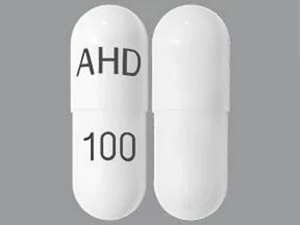
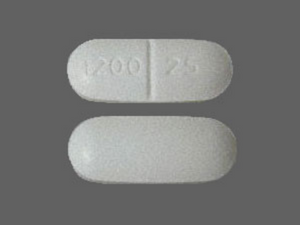
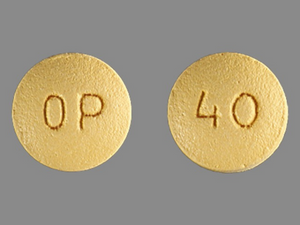
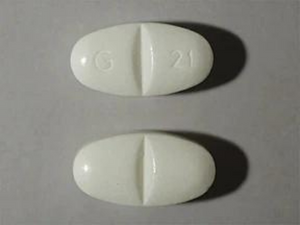
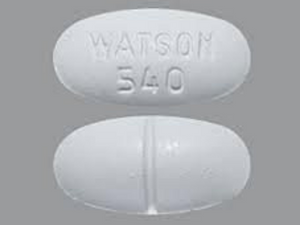
Reviews
There are no reviews yet.